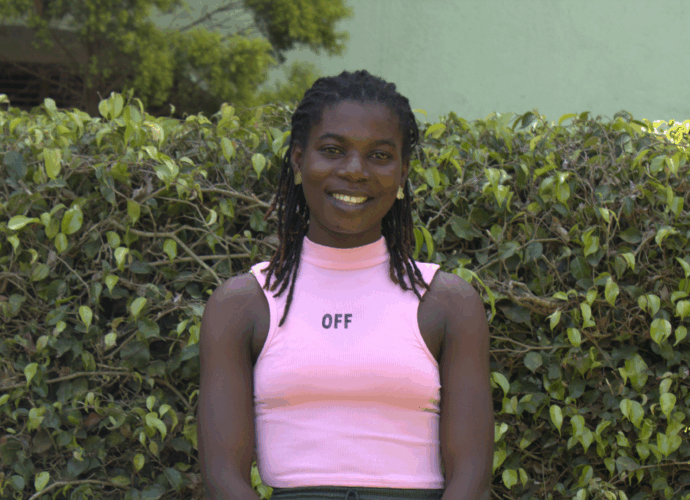When Atuhura Charity was a young girl in Bujenje County, Masindi District, she would sit beside her mother’s radio, listening intently to the weekend dramas and educational programs aired on Bunyoro Broadcasting Services (BBS FM). Today, she works at that very station—BBS 98.2FM in Western Uganda—as a Runyoro-language news anchor, talk show host, reporter, and co-host of the farmers’ program Liima Yorora Lisa Ogaigahale.
Ms. Charity joined the media industry in 2020 after earning a certificate in mass communication from the Masindi School of Journalism and Mass Communication. She says her love for broadcasting was sparked during her school years, where she served as Entertainment and Information prefect at Ikoba Girls Secondary School. This early interest guided her into a career focused on informing and uplifting rural communities.
Currently, Ms. Charity co-hosts several programs that respond to the diverse needs of her audience. These include the Green Leaf Radio Magazine, a farmers’ program supported by Farm Radio International, the Ministry of Agriculture, the IKEA Foundation, and the Masindi District Local Government. The program covers topics across the agricultural value chain—from crop pests to livestock feeding. She also leads a show on marriage and family life, addressing domestic violence, gender dynamics, and health issues, as well as a program called Government Hour, which connects community members with government representatives.
She says: “I am very passionate about communication that supports development in rural communities and gives me the opportunity to advocate for the vulnerable.”
What sets her programming apart, Ms. Charity explains, is how she packages her content—using storytelling, expert interviews, and on-the-ground voices to keep listeners engaged while delivering important information.
In one memorable moment, while reporting in Pakanyi Sub County, Ms. Charity met a fish farmer named Rugambwa Charles who was feeding jackfruit to his fish due to a lack of knowledge. She invited him to listen to the farmers’ program, which featured a fisheries officer who answered questions about proper feeding. Later, the farmer called to express his gratitude for the life-changing advice.
Community feedback—via phone calls, text messages, and in-person visits—plays a central role in shaping her shows. Ms. Charity regularly integrates voices from the field and invites local government experts to provide technical guidance on the issues raised.
She attributes much of her professional growth to training received from Farm Radio International. She says, “I am now more confident, better prepared, and more intentional in addressing gender equality and inclusion.” Skills like co-hosting, planning run sheets, and conducting structured interviews have improved thanks to this support.
Despite challenges like late or absent guests, time constraints, and occasional threats from political figures, Ms. Charity continues to deliver impactful programming. She manages these difficulties through early planning, strong guest coordination, and by maintaining a focus on accurate and community-centered information.
She has already witnessed real change in her community—from improved sanitation services at Kirasa Market after a news report she produced, to increased adoption of expert advice by local farmers, to reconciliation in families facing domestic conflict.
Looking ahead, Ms. Charity hopes to pursue further education in journalism, take on leadership roles in media associations, and continue building a strong network of listeners and resource people. She also wants to continue challenging gender stereotypes through her programs.
To other broadcasters hoping to make an impact, she offers this advice: “Do your research. Avoid conflicts of interest. And share credible, constructive information if you want to serve your community well.”

